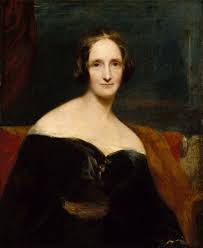The Life and Legacy of Mary Shelley

Introduction: A Literary Icon
Mary Shelley, best known as the author of the groundbreaking novel “Frankenstein,” remains a pivotal figure in both the literary world and the development of the science fiction genre. Her work has inspired countless adaptations and discussions about ethical boundaries in science, making her relevance timeless and significant in today’s context, where technology continues to advance at an unprecedented pace.
Mary Shelley’s Early Life
Born on August 30, 1797, in London, Mary Wollstonecraft Godwin was the daughter of prominent thinkers William Godwin and Mary Wollstonecraft. Her upbringing was steeped in intellectual discourse, shaping her early views on society, philosophy, and morality. At the young age of 18, while on a trip in Switzerland with poet Percy Bysshe Shelley, she conceived the idea for “Frankenstein,” inspired by a conversation about galvanism and the reanimation of the dead—a concept that intrigued many during the early 19th century.
Impact of ‘Frankenstein’
Published anonymously in 1818, “Frankenstein; or, The Modern Prometheus” is often credited as the first science fiction novel. The book explores complex themes of creation, responsibility, and the consequences of playing God, which resonate more than ever in our current age of genetic engineering and artificial intelligence. The monstrous figure of Frankenstein’s creature has become an enduring symbol of humanity’s struggle with isolation, acceptance, and the ethical dilemmas posed by scientific advancement.
Mary Shelley’s Later Life and Influence
In addition to her famous novel, Mary Shelley wrote several other works, including “The Last Man,” and she engaged deeply with the social issues of her time, including women’s rights and class inequality. Despite facing numerous personal hardships, including the death of her husband and children, Shelley continued to write and promote other authors’ works, playing a crucial role in the Romantic literary movement.
Conclusion: An Enduring Legacy
Mary Shelley passed away on February 1, 1851, but her contributions to literature endure. Her exploration of human nature, ethics, and society in “Frankenstein” continues to inspire discussions in literary studies, philosophy, and science. As society stands on the brink of new scientific possibilities, Mary Shelley’s cautionary tale reminds us to consider the moral implications of our innovations. Readers today can glean valuable insights from her works, making her legacy not just a reflection of her era but a guiding voice for ours.









